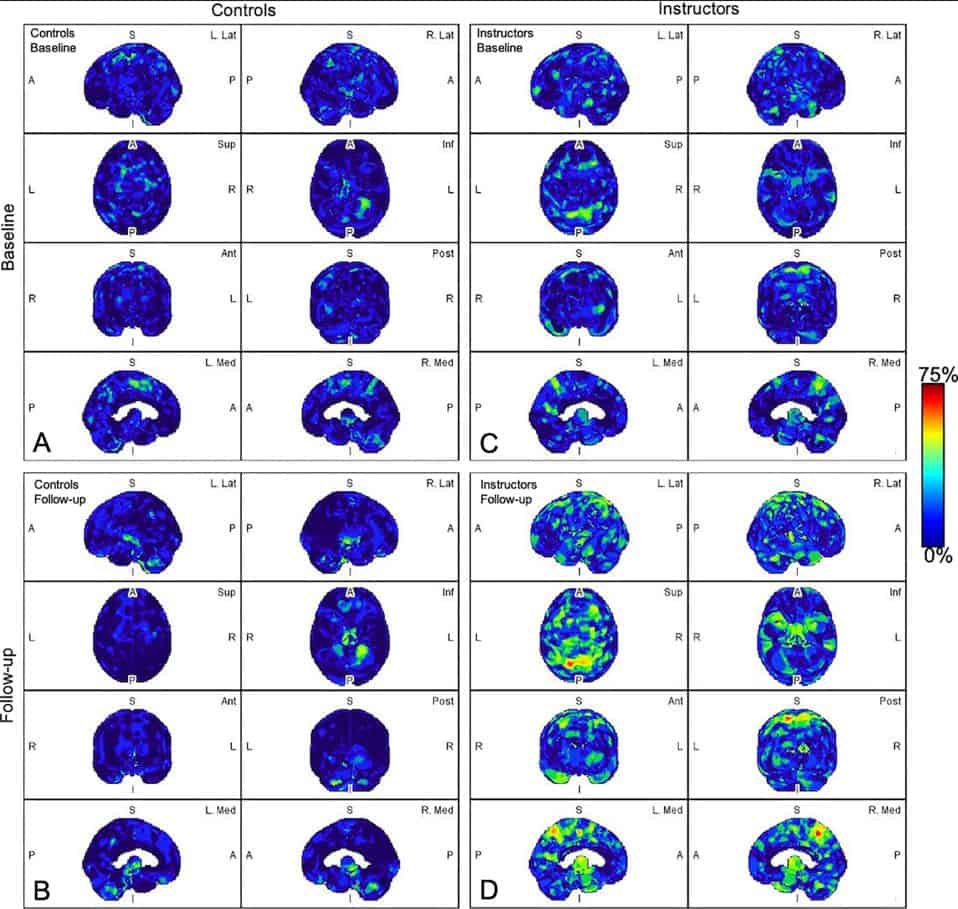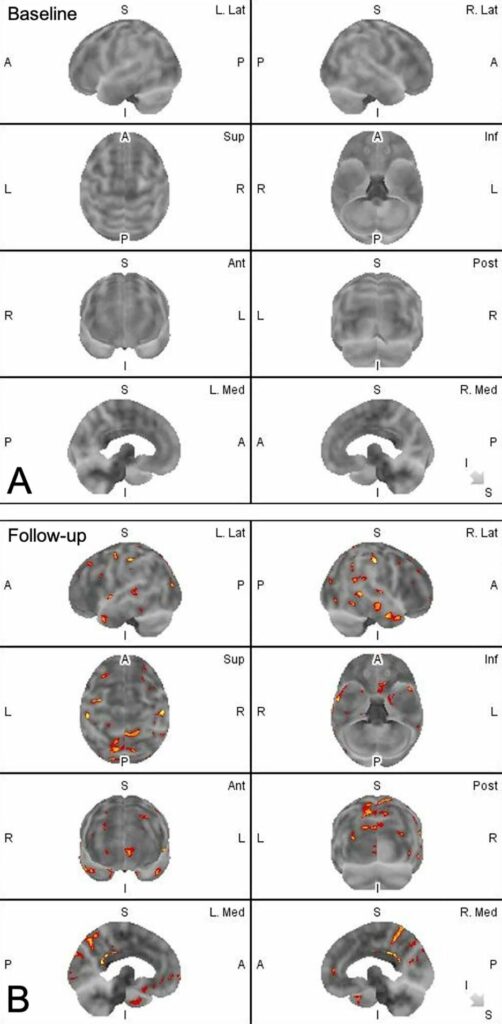A New Study Reveals an Early Event in the Pathogenesis of Alzheimer’s Disease Prior to the Accumulation of Amyloid-beta in the Brain
Amyloid beta is not typically present in the brains of young individuals. The accumulation of amyloid-beta in the brain is believed to be a critical early step in the development of Alzheimer’s disease, which is the leading form of dementia worldwide and affects millions of people.
According to a new study published today in Radiology, military personnel exposed to explosions, but otherwise healthy, display an atypical accumulation of amyloid-beta protein in their brains.
The study supports previous research indicating a potential link between repetitive or severe traumatic brain injury and abnormal amyloid-beta accumulation. The accumulation of certain forms of amyloid-beta can lead to cognitive decline and neurodegenerative diseases like Alzheimer’s disease, characterized by tangles and plaques in the brain.
Traumatic brain injury (TBI) can be caused by direct head trauma, such as from falls or contact sports, as well as indirect forces like shockwaves from battlefield explosions that violently shake the brain within the skull. Autopsy studies have previously revealed the presence of amyloid plaques just hours after a severe brain injury.
“Non-invasive positron emission tomography, or PET, imaging could be used to identify early-stage amyloid-beta accumulation in individuals or professions exposed to traumatic brain injury such as military personnel, police officers, firefighters, football players, etc.,” said study author Carlos Leiva-Salinas.
Researchers conducted a study from January 2020 to December 2021, recruiting nine military officers at Fort Leonard Wood Military Base in Fort Leonard, Missouri. These officers were instructors of grenade and breaching techniques, which involve teaching recruits how to use hand grenades and explosives, as well as other mechanical methods to forcibly open doors.
In the study, an additional nine healthy male civilians in their early 30s, with no prior history of concussion, were included as a control group. The 18 participants, including the military trainees and the control group, were evaluated twice, with the first evaluation establishing a baseline and the second taking place approximately five months after exposure to blasts. Military instructors kept digital logs of the number of exposures to explosions, including firing of weapons. PET scans of the head were used to evaluate and quantify amyloid changes in all participants, with analysis software segmenting six brain regions commonly associated with Alzheimer’s disease and TBI.

Results showed that six out of nine participants exposed to explosions displayed abnormal amyloid accumulation. Specifically, three participants had increased amyloid accumulation in one region of the brain, two had two regions with abnormal accumulation, and one participant had abnormal accumulation in three brain regions. No abnormal amyloid accumulation was observed in the healthy control participants.

These findings suggest that an early event, prior to the accumulation of amyloid-beta, may increase the risk of Alzheimer’s disease in individuals with TBI.
Dr. Leiva-Salinas stressed the need for additional research to investigate the link between traumatic brain injury frequency and severity, amyloid accumulation, and the progression of cognitive decline.
It is essential to study the natural course of the observed accumulation and other possible biological risk factors for the deposition of amyloid plaque and the development of cognitive impairment, according to the author.
Image Credit: Getty
